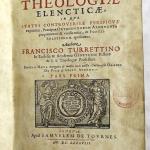Two stories. First up, from our brothers and sisters to the East, comes a baptismal incentivized baby boom:
Two years after having one of the lowest birth rates in the world, Georgia is enjoying something of a baby boom, following an intervention from the country’s most senior cleric.
At the end of 2007, in a move to reverse the Caucasian country’s dwindling birth figures, the head of the Georgian Orthodox Church, Patriarch Ilia II, came up with an incentive. He promised to personally baptise any baby born to parents of more than two children.
There was only one catch: the baby had to be born after the initiative was launched.
The results are, in the words of the Georgian Orthodox Church, “a miracle”.
The country’s birth rate increased by nearly 20% during 2008 – a rate four times faster than the previous year.
Many parents say they took the decision to have another child on the basis of the Patriarch’s incentive.
Second, a new study by the International Monetary Fund suggests that our evangelical brothers and sisters may have played a role in keeping the housing bubble from being even worse than it turned out to be:
A new study by Christopher W. Crowe, an economist for the International Monetary Fund, found that during the last two housing booms in the United States, regions with high concentrations of evangelicals saw lower gains in home prices and less volatility than similar regions with fewer evangelical residents.
The reason to consider this more than just a statistical quirk, Mr. Crowe says, is that conservative Christianity teaches followers that God owns all worldly possessions. In practice, that means that unchecked greed and speculative frenzy are seen as undesirable in the evangelical community.
Many evangelicals, who make up 7 to 25 percent of the United States population, depending on whom you ask, also believe that the end of the world and the second coming of Jesus Christ will be marked by great calamity. Putting these two views together, Mr. Crowe proposes that evangelicals are more likely to spend money when times are bad for nonbelievers.
Evangelicals, in other words, are natural Keynesians.
(MHT: Marginal Revolution)
















